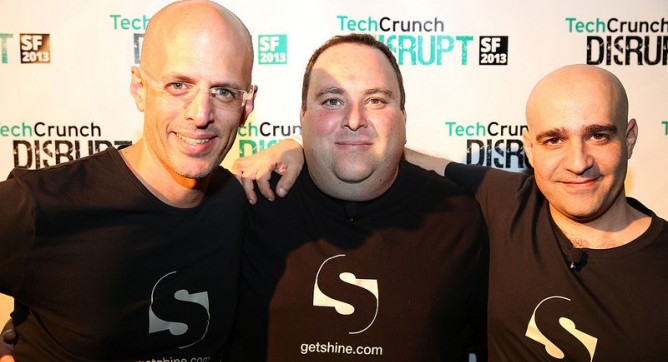While they won’t say it to the media, most security technology startups
in Israel have a link to Israel’s version of the CIA, Unit 8200. But
Ron Porat, who founded the anti-virus company Shine (www.getshine.com), comes from a modest background as a technician in the Israeli Air
Force. Once a teenage gaming hacker, after military service he became
a professional archeologist.
Seven years of digging though layers of dirt led to a sad paycheck
that wouldn’t support a growing family. So Porat, now 44 with three
kids, went back to the traditional workforce as a programmer and worked
his way to the top.
“I decided to make a turnaround in my life and start from scratch
– I knew how to program and hack, and I began as a programmer and
went up the hill until I had the startup and a high-tech exit,” he
says.
Now on his third startup as the CEO of Shine, Porat is building a promising mobile and PC security company out of Herzylia, Israel. Shine is designed to detect and stop viruses and malware real-time on any device. Hopeful buyers have offered him and his co-founders millions for the year-old company with 24 employees. But they are not selling.
He tells ISRAEL21c: “One of the three [big] anti-virus companies gave us an offer of eight digits after we founded the company, and we said ‘no.’ We are going into this from the bottom of our hearts. This is our calling.
We need to help people. This is the ultimate threat of the future and we want to generate a huge company that will go head to head with all the big ones.”
Targeting the unprotected mobile
space
What’s the problem in today’s arena? Porat says
that mobile devices and smart “everythings” are virtually open
to attack. Anti-virus companies are still focusing on PCs rather than
tablets and mobile phones.
“There are very common viruses on the phone and
they are starting to be more common,” Porat explains. “They can
steal information and send a costly SMS from your phone to get money
from advertisers. They forward your contact list to the cloud and use
it for spam. They can steal pictures and your contact list.”
These viruses can even open the mic and camera of
your device, without your knowledge, in order to spy on you. They can
hack into a car’s computer system while it’s in drive mode; they
can hack into smart homes, government files, just about anything ––
as Edward Snowden demonstrated with Prism.
Shine hopes to swoop in and save the day via an artificial
intelligence solution different from the virus signatures used by anti-virus
companies.
The program “learns” what is normal on a device, as opposed to
events that seem malicious. Working in real time, the software constantly
updates itself, pulling information from the cloud or from users attached
to the “hive” but does not collect private information, Porat promises.
Your device is protected when you see a sunflower
and sunshine. When it may be under threat, Shine alerts users by showing cloudy weather.
Then you can decide whether to go ahead and unlock the software or
fix the damage that has been done. There are no costly fees or slow
loading times as Shine does its background checks. For everyday users,
Shine is free.

- A sunny user interface lets you know all is well
Is your software behaving?
Porat emphasizes: “We are not profiling users or using private behavioral
information of users. It works in the same way that I teach my kids
how to cross the road. I am teaching them the basic ideas: to look right,
left and right again.”
The same kind of “supervised learning” goes on in Shine’s program
with the help of a proprietary algorithm that recognizes good and bad
in the space of malware.
“Anti-virus software is a real hassle along with the messages they
throw you, which are confusing,” says Porat. “Basically we have
put several game-changing ideas into the program.”
The free download software lives on your smartphone, tablet or Android device (with a PC and OS version out soon).
The company plans to make its money with solutions for enterprise. Let’s say a sales force from the United States has gone to the Philippines to a trade show, and all their smartphones are attacked by a virus while there.
Shine, which will unveil this solution next year, will be able to
track down who was contaminated first, where the virus spread and how
much damage was done. In theory, Shine could protect a fleet of phones,
tablets and PCs from external attacks, Porat says.
And unlike any device or back up solution known today, Shine can roll
back the damage caused while leaving other updated data intact.
Shine is sailing smoothly toward sunny skies with
a $3 million investment from the VCs Horizons Venture and Initial Capital.
















